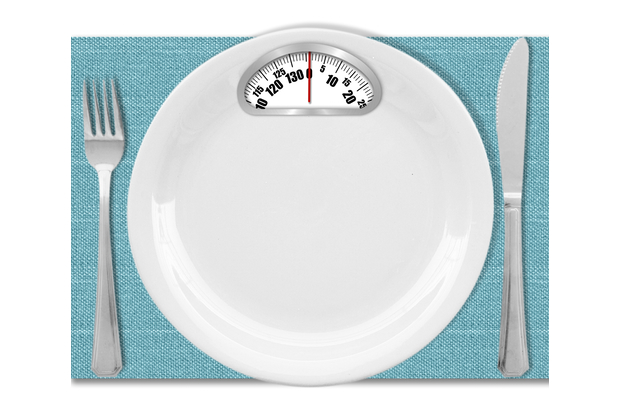Porky, flabby, lardy? Obese — and morbidly so? Yup. That’s us. We knew already that two out of three of us weigh more than is healthy, and last week the scales of shame revealed further cause for dismay: Britain has more obese girls under 20 than anywhere else in the West. Something, as the hand-wringers say, must be done.
And so the scene was set for the National Institute of Health and Clinical Excellence (Nice) to bring out some advice. All of the guilty, they say — yes, two thirds of the population — should be sent to classes like Weight Watchers or Slimming World, with the tab of some £50 a head picked up by the NHS. Gob-smacked? Somebody should be.
Even if it worked, we couldn’t afford it; and such a scheme would not and could not work. The aim, says Nice, is for people to lose 3 per cent of their my body weight and keep it off; it seems not to trouble the advisers that if a morbidly obese woman of 18 stone were to lose 3 per cent of her body weight she would end up… morbidly obese.
Now then. I write as one who, spurred by a fitness alert, shed 25 per cent of her body weight and has kept it off for nearly 18 months — not that many people appear to have noticed, pah! — and this much I have learnt: the only viable route to enduring weight loss is to take rigid, personal control of your body, your food and your understanding of each. Outfits like Weight Watchers make you do the opposite. You are required to hand over all control and responsibility to them.
It is, by design, infantilising. You go to class and teacher marks your homework. If you have been ‘good’ you will be rewarded — fellow pupils will cheer — but if you have been ‘bad’ you face a punishingly public weigh-in.
There is a pretence that you are being taught to live well; but facts are obfuscated at every turn. Most of us, for instance, can grasp — or be taught to grasp — the meaning of a calorie as a unit of heat: one calorie is about the amount of energy needed to raise the temperature of a gram of water by 1˚C, and translating that into knowing how many it takes to keep your body ticking is, relatively speaking, seemples.
Weight Watchers complicates it. Oh, they don’t hide calorie counts — but they prefer to allocate what you are ‘allowed’ in terms of what they call ProPoints and you call ‘Duh?’ These are calculated by a patented algorithm so complicated that nobody this side of space travel could replicate it. Exactly, one must assume, as intended — but never fear, you don’t need to calculate by yourself, it’s been done ‘for you’. So many ProPoints for this, so many for that, don’t trouble your little head, just follow along with the rules.
In common with other slimming cults, Weight Watchers does not make all of its profit in classes; there are also ready meals which, again, are ProPoint-counted ‘for you’. Not cheap, mind: my local Tesco offers their chicken and lemon risotto and their sweet and sour chicken at £6.25 a kilo; steep, you might think, for poncy rice. In fairness, they list the calories and fat – but there’s little inducement to read them, given the prominent flag on each: ‘Eight ProPoints’. Only eight? That’ll do.
Or you could cook from the approved recipe list. Like, say, Sausage and Bacon Rolls, for which you first need to take three Weight Watchers Premium Sausages. What’s in those? Don’t ask. It’s all been counted ‘for you’.
Obviously, if you stick to doing as you are told, you will eventually weigh less than when you started — but the loss in inches is unlikely to be matched by a gain in awareness. A quick look online shows what that means to those who reach their ‘goal’ and waddle off to cope alone. ‘I’ve been going to Weight Watchers on and off for three years,’ writes one devotee, with no apparent sense of irony, ‘and every time I rejoin I lose weight.’
In my view, Weight Watchers’ methods are more likely to foster dependency than cure it. Whether intended or not, that’s good for business: otherwise, who would cough up next year for the chicken and lemon risotto? Nor can you blame a national health system for trying to tackle a health crisis. Indeed, there are things governments could usefully do: it has never seemed cricket to me that you can buy a ‘wholesome’ loaf of brown bread and not be told that it hides half a ton of sugar; such deceptions can and should be curbed by legislation. Nor, even, can you blame the obese; I have immense sympathy for those who have such a warped relationship with food that their lives are endangered by it.
But there is no cohesive, moral case for a link between private profit, public funding and personal fallibility. No carrots, no sticks, no coercion and certainly no flashing of cash will change the dismal truth: nobody will ever lose weight unless and until the day dawns when they want to do so more than they want the next slice of cake.
Got something to add? Join the discussion and comment below.
Get 10 issues for just $10
Subscribe to The Spectator Australia today for the next 10 magazine issues, plus full online access, for just $10.
You might disagree with half of it, but you’ll enjoy reading all of it. Try your first month for free, then just $2 a week for the remainder of your first year.














Comments
Don't miss out
Join the conversation with other Spectator Australia readers. Subscribe to leave a comment.
SUBSCRIBEAlready a subscriber? Log in